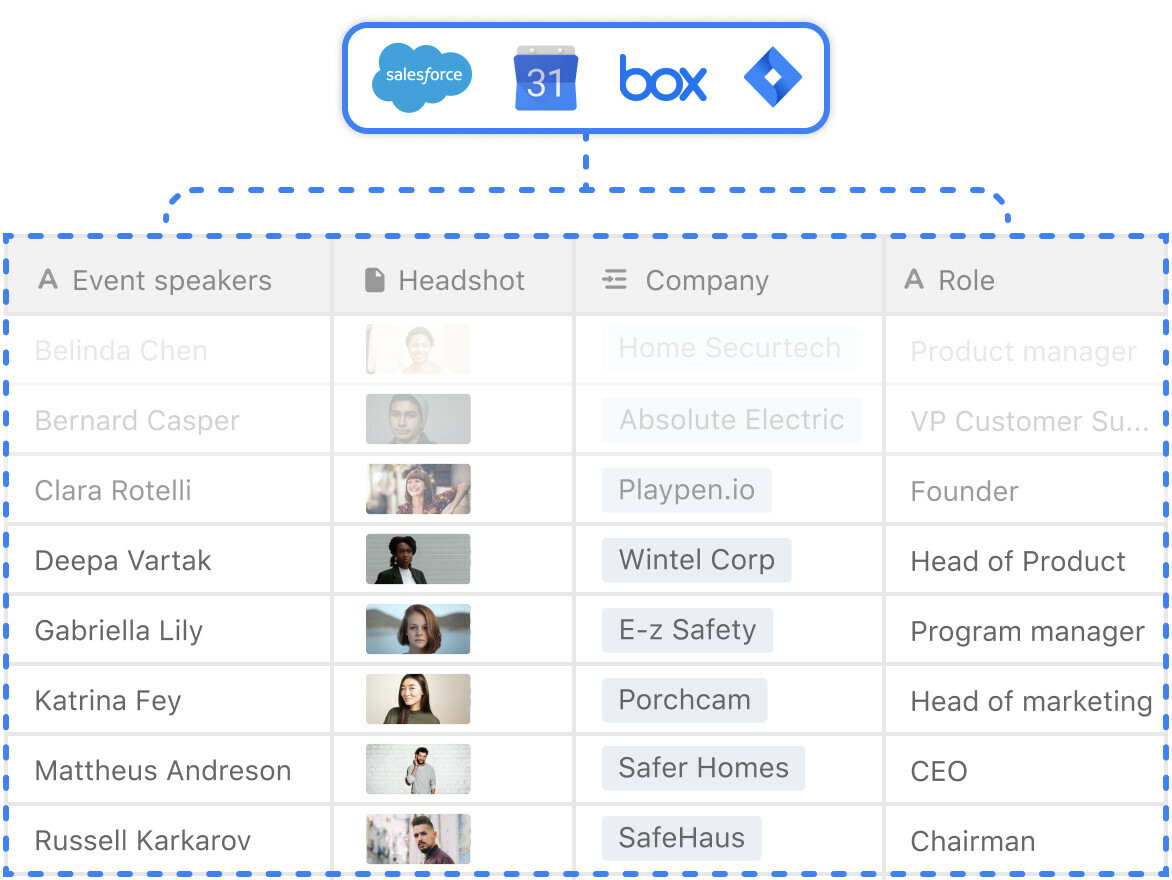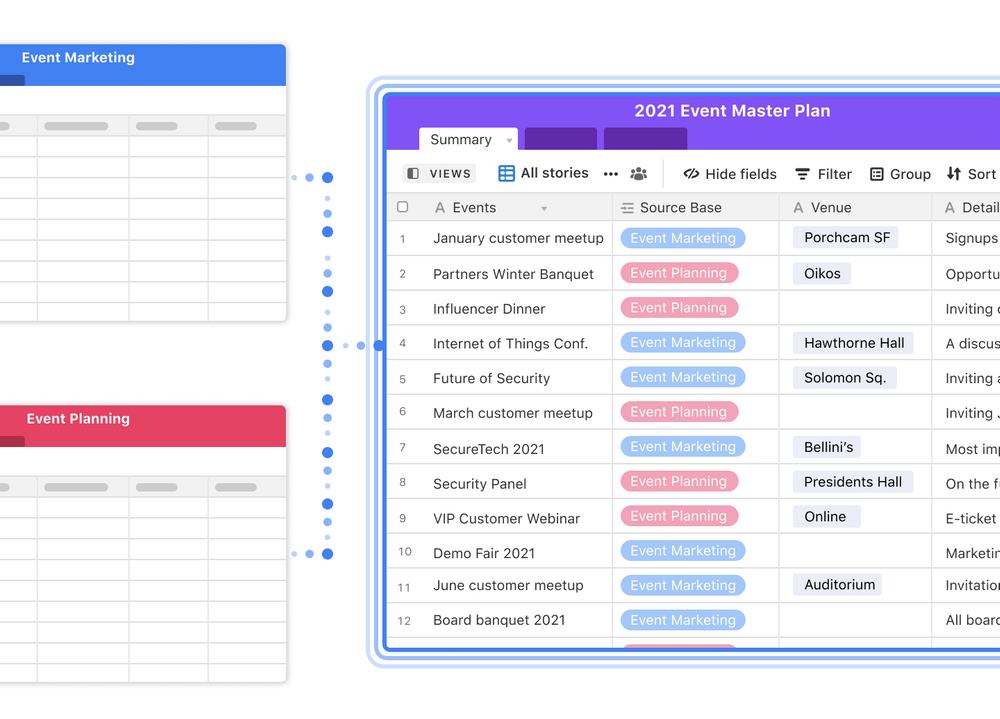It’s a big day here at Airtable. Today, we’re sharing a bevy of new tools so teams of all sizes can accomplish more using Airtable. 🚀
We’ll share a few posts here in the community to cover all of the features that are officially launching today. To start, I have some exciting updates about new Sync functionality below.
External source syncing

External source syncing enables automatic—and continuous—synchronization from approved sources. Once that data is brought into Airtable, many new possibilities emerge. For example, marketing teams can sync in a list of top accounts from Salesforce for campaign planning.
With this feature you can now sync data from Google Calendar, Jira Cloud, Salesforce, and Box. If your company relies on any of these services, this feature can contribute to some massive time savings by removing error-prone manual updates.
Salesforce
Automatically pull a business object (contacts, leads, accounts, etc.) report from Salesforce into a table on an ongoing basis via Airtable Sync. This is currently in closed beta for Enterprise users; if you have an enterprise account, contact your CSM for details on how to get access to the closed beta.
Google Calendar
Send Google Calendar event information directly into your Airtable marketing base. Use this to sync content or campaign calendars that are managed in Google so marketing teams can action the data in Airtable.
Learn more about Google Calendar external source sync →
Jira
Sync Jira issues found in filters to an Airtable base. This is helpful for tracking issues, teams, projects and more using a single Airtable base as your source of truth.
Learn more about Jira external source sync →
Box
Send Box file information (URL, attachments, etc.) directly into an Airtable view. This is typically used by marketers who are tracking their content pipeline in Airtable and are collaborating with a design team who is hosting their creative using Box.
Learn more about Box external source sync →
Multi-source sync

We’re also making it possible to sync multiple external or internal sources right into one view. We’re calling it multi-source syncing, and it’s a streamlined, enterprise-ready way to aggregate, monitor, and execute against critical information. It’s perfect for complex collaborative tasks, like transforming data from different teams into a consolidated company roadmap or creating executive rollups of communications activities across business functions.






